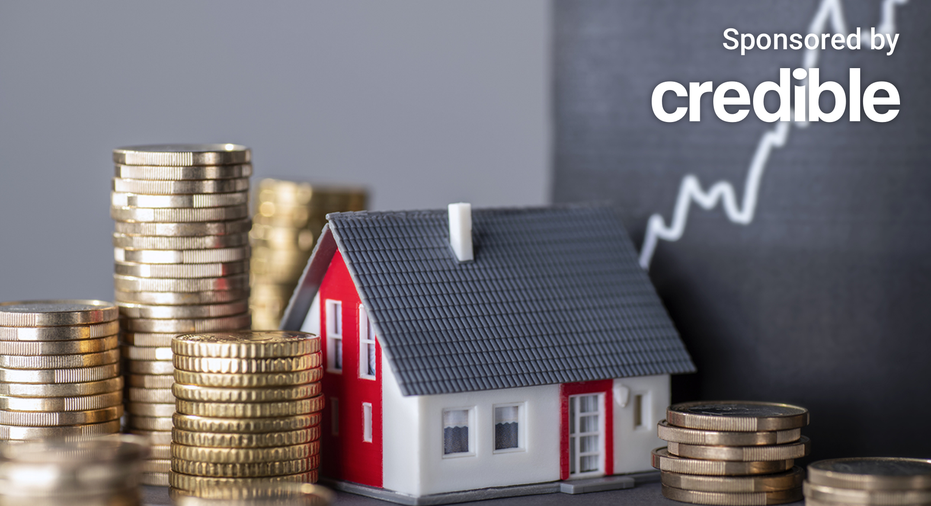
Renters and homeowners alike feel the strain of high housing costs, a recent survey said. (iStock)
Renters and homeowners have had to make difficult decisions due to high housing costs, according to a recent Nationwide survey.
Rising housing costs are why 20% of renters and 8% of homeowners reported they had to relocate and move into smaller spaces. Moreover, one in five (21%) respondents said they have withdrawn money or are considering withdrawing money from their retirement savings to cover housing costs. Additionally, 40% of homeowners have delayed critical property repairs because of high costs or because they needed to use the money for other financial priorities.
Home and apartment costs continue to rise, and remain the leading cause of inflation. Homebuyers are dealing with mortgage rates that have hovered near 7% for the 30-year, while home prices have increased by more than 40% since before the pandemic homebuying frenzy. The survey said the outlook for housing looks dire, with 66% of respondents expecting market dynamics to worsen over the next 12 months even if the Federal Reserve begins to dial back interest rates.
"While many Americans are feeling financially strained, nowhere is that strain more apparent than for lower earners and renters, who are reacting strongly to the daily budget pressure they feel from high housing costs and sticky inflation," Nationwide Chief Economist Kathy Bostjancic said. "At the same time, we see improving macroeconomic conditions, including wages keeping pace with inflation. This tension between rapid price increases over the past several years and the evolving big picture is what has made today's economy challenging to understand."
If you're considering becoming a homeowner, it could help to shop around to find the best mortgage rate. Visit Credible to compare options from different lenders and choose the one with the best rate for you.
MILLENNIALS MOST LIKELY TO UNLOCK LOW MORTGAGE RATE TO MOVE: FREDDIE MAC
Homeowners cut insurance coverage to save money
Homeowner insurance premiums have increased by 55% in the last four years as losses build and insurers struggle to recoup costs, according to a recent Guaranteed Rate Insurance report.
Rising insurance costs add to the affordability challenges of homeownership, and consumers are looking to cut costs wherever they can, according to Nationwide. More than three-fourths (76%) of respondents said they have either reviewed or are considering reviewing their insurance policies, with 25% looking for ways to save money on their premiums with their existing policies. Almost 1 in 5 (18%) said they plan to decrease coverage on their existing policies.
"As consumers focus on how best to manage their finances during this uncertain economic period, an insurance agent can serve as a valuable partner to help people understand how best to manage the sometimes delicate balance of saving money in the short term without exposing themselves to significant future financial risks," Nationwide President of Personal Lines Insurance Casey Kempton said.
If you have a mortgage, you're typically required to carry homeowners insurance, but you don't have to stick with any particular insurance company. If you want to save on your home insurance costs, you could shop around for the best rate. Credible can help you compare home insurance rates from top insurance carriers all in one place.
Housing affordability top concern for young voters
Roughly 91% of Gen Zers ranked housing affordability a top factor when deciding who to vote for. In fact, home affordability was ranked above other issues, including the economy, abortion rights, gun rights, preserving democracy and foreign wars, a recent Redfin survey said.
President Biden has called on Congress to invest more than $175 billion in affordable housing initiatives, according to a White House statement. The Biden administration has proposed using some funds to build and maintain millions of affordable homes for rent and ownership, such as accessory dwelling units and manufactured housing. The administration has also proposed using funds to incentivize state and local governments to reduce barriers to affordable housing development.
Biden has also proposed a new Neighborhood Homes Tax Credit. The proposed federal initiative would enable better affordability for home buyers by injecting $16 billion to add more housing stock and $10.1 billion for down payment assistance. The tax credit would be provided on the condition that low- or middle-income homeowners occupy the home.
Biden has also called on Congress to create legislation giving a $10,000 tax credit to first-time homebuyers and those who sell their starter homes. The credit would be spread over two years and credited as $400 monthly payments. The tax credit would be equivalent to reducing the median home's mortgage rate by 1.5 percentage points over two years.
A second term for former President Donald Trump could renew the push for a federal government reform and reorganization plan. One plan would involve privatizing Fannie Mae and Freddie Mac to promote competition in the housing finance market and create a system that encourages sustainable homeownership.
If you'd like to see if you qualify for a mortgage based on your current credit score and salary, consider visiting Credible, where you can compare multiple mortgage lenders at once.
HIGH HOMEOWNERS INSURANCE RATES SCARING AWAY FLORIDA HOMEBUYERS, OTHER STATES FACE THE SAME ISSUE
Have a finance-related question, but don't know who to ask? Email The Credible Money Expert at [email protected] and your question might be answered by Credible in our Money Expert column.




